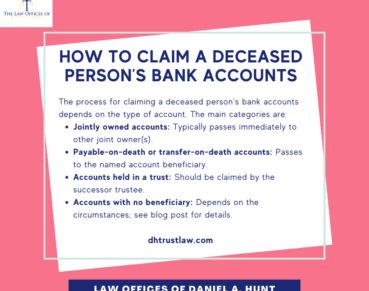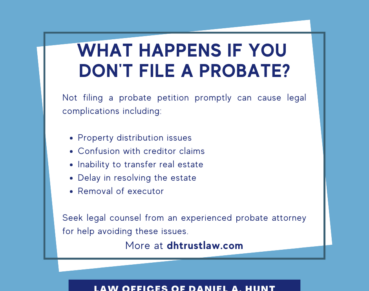How to Sell a House During the Probate Process

After a death in the family, thinking about selling the family home can be difficult. Family members often find it challenging to grieve when they know that they will need to go through the probate process. The probate process happens when a person dies with a will only. A court will supervise the probate process to distribute the deceased person’s estate. Many times, the probate process involves selling the deceased individual’s home and other property. It is essential to understand how to sell a house during the probate process because certain unique requirements need to be met.
The Appointment of an Administrator or Executor of the Estate
In the first step of the probate process, the probate court will appoint an administrator or executor of the estate. In some cases, the deceased individual will have named an estate executor in their will. When that is not the case, the court will appoint someone to act as the executor. After the executor’s appointment, the executor will begin assessing all of the estate’s assets, including homes and other property. They will need to get accurate valuations of all of the real estate and other assets owned by the estate. An estate executor must take specific steps before they list the property for sale.
Formal Real Estate Sales in Probate
First, the probate court will determine whether the probate process is formal or informal. In a formal probate process, the court must approve every single step of the real estate sales transaction. As a result, the formal process is often more lengthy than the informal process. In many cases, formal probate sales of real estate take over six months. The executor will also need to hire an attorney to assist with the real estate sale.
The estate executor will need to get the real estate appraised before putting it up for sale. The appraisal must also meet stringent requirements. The appraisal will be the basis for the asking price of the home. Probate courts require that the property sells for at least 90% of the home’s appraised value. After receiving the appraisal, the executor will petition the probate court to begin the sale. Once the court hearing is over, it will grant the executor permission to list the home’s sale formally. The sale must be listed as a probate sale.
After someone makes an offer on the property, another court hearing will be required. While the parties wait for the hearing to take place, the real estate sale must be advertised in a local newspaper, and the advertisement must mention the offer sales price. Doing so allows other potential buyers the chance to bid on the real estate property at the court hearing.
The Court Hearing Before the House Sale is Finalized
At the court hearing itself, additional potential buyers can show up and bid on the property. The person who made the initial offer can also bid on the property. The probate court will supervise the bidding and overbidding process. Once again, there are strict rules as to the bidding process for a home being sold in probate. Specifically, the first overbid must be at least 105% of the original buyer’s offer price plus $500. Bids that follow must meet the limits set by the court. Most courts will require additional bids to go up in $5,000 to $10,000 intervals. The probate court will confirm the final buyer at the end of the hearing, and then the executor can complete the real estate sale.
Selling a House: Informal Probate
In some cases, the probate court allows an informal probate process. This process will be used when the real estate in question was owned by the deceased with someone else in joint tenancy with a right of survivorship. In other words, the deceased individual owned the real estate as a joint tenancy with rights to survivorship, as indicated on the deed. Typically, when spouses have purchased a home together, they will own the home jointly. Informal probate can also be used to sell a home when the property was placed in a living trust. There are fewer hoops the estate executor must jump through to sell a real estate property informally. Additionally, an attorney is not required for informal probate sales.
First, the estate executor needs to file the will and all corresponding probate forms with the probate court. Next, the probate court will issue Letters of Testamentary. These documents allow the estate executor to manage all of the estate assets, from real estate to bank accounts. The executor must complete many forms and file them with the court during this process. Finally, the executor will list the house for sale and sell it in the usual way without any bidding auction or probate court interference. This process typically takes significantly less time because the court does not need to be involved to the extent necessary in the formal probate process.
You Need an Experienced Probate Lawyer on Your Side
If you are an estate executor or a beneficiary, you may feel overwhelmed by the probate process. One of the most important things you can do as the estate executor, or someone else who needs assistance with the probate sale of real estate is to contact an experienced probate lawyer.
While it is technically possible for you to manage the estate sale yourself, you will save yourself significant time, money, and potential liability by working with a lawyer who understands all of the relevant legal requirements involved. Your lawyer will also be able to move forward with complicated probate sales that require paperwork as quickly as possible. If you have any questions about how to sell a house during the probate process, contact the probate lawyers at the Law Offices of Daniel A. Hunt to schedule your initial consultation.
Law Offices of Daniel A. Hunt
The Law Offices of Daniel A. Hunt is a California law firm specializing in Estate Planning; Trust Administration & Litigation; Probate; and Conservatorships. We've helped over 10,000 clients find peace of mind. We serve clients throughout the greater Sacramento region and the state of California.




